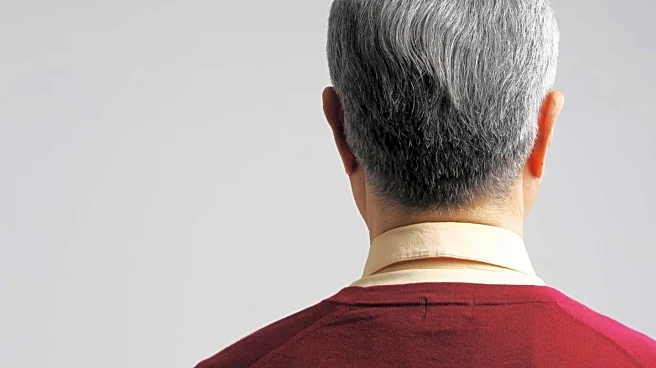What's Happening?
Recent data highlights a significant decline in male friendships, particularly among middle-aged men, raising concerns about social isolation. A study by the Survey Center on American Life revealed that 15% of men reported having no close friends in 2021, a stark increase from 3% in 1990. This trend is more pronounced among heterosexual men compared to their gay counterparts. The decline in male friendships is attributed to cultural shifts in masculinity and societal changes, rather than biological factors. The phenomenon is not limited to the U.S., with similar patterns observed in Australia, where middle-aged men are reported to be the loneliest demographic. The lack of social connections has been linked to severe health implications, including increased mortality risk and mental health issues.
Why It's Important?
The growing loneliness among middle-aged men poses significant public health challenges. Social isolation is associated with various health risks, including mental health disorders and increased mortality. The decline in male friendships reflects broader societal issues related to changing gender roles and cultural expectations. Addressing this issue requires creating better social infrastructure for men, similar to the 'third spaces' utilized by queer communities. The trend also underscores the negative impact of patriarchal norms on men's social well-being, challenging traditional notions of masculinity that discourage emotional vulnerability and social bonding.
What's Next?
Efforts to combat male loneliness may involve promoting new social spaces and activities that encourage male bonding outside traditional settings. Public health initiatives could focus on raising awareness about the importance of social connections and challenging harmful gender stereotypes. Additionally, further research is needed to explore effective strategies for fostering male friendships and reducing social isolation.
Beyond the Headlines
The issue of male loneliness highlights the broader cultural and societal shifts impacting gender roles. The rise of digital media and targeted marketing has contributed to the desocialization of men, emphasizing individualism over community. This trend reflects a need to reevaluate cultural narratives around masculinity and promote healthier, more inclusive models of male socialization.









